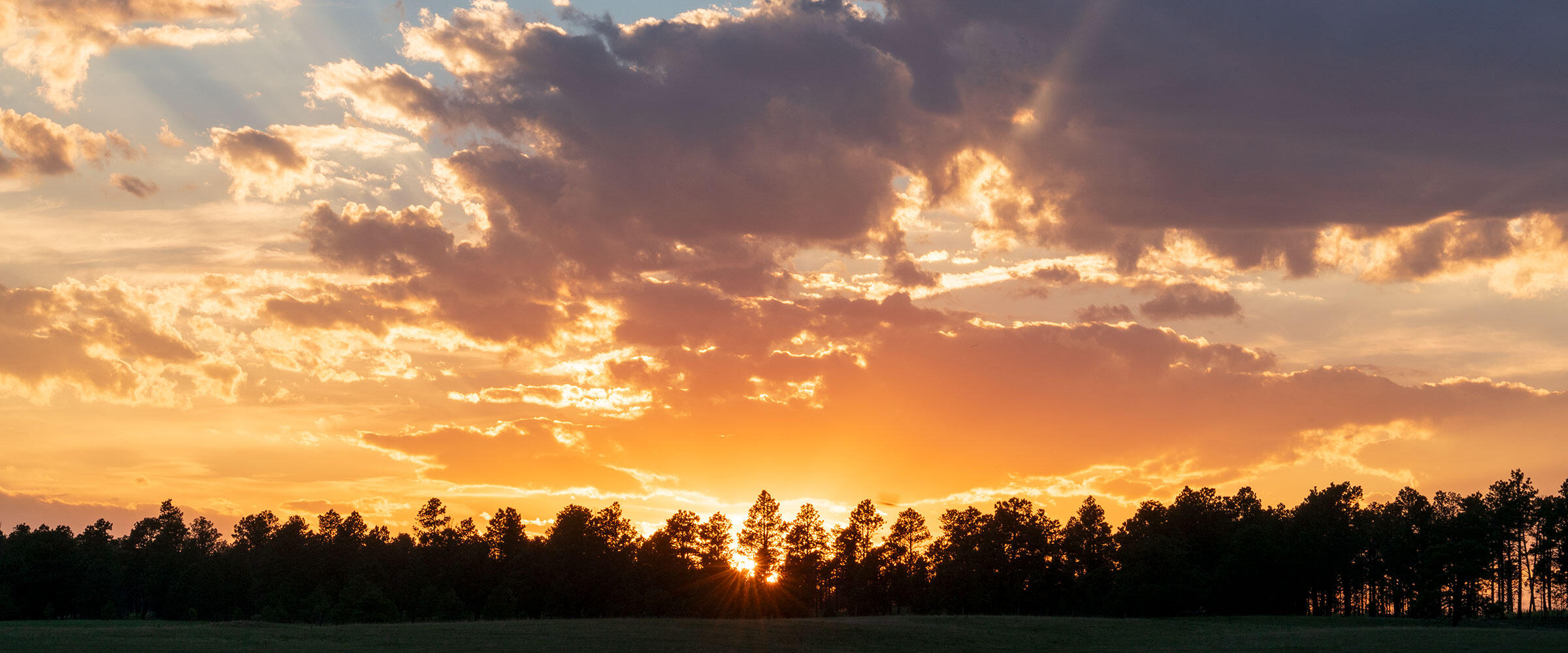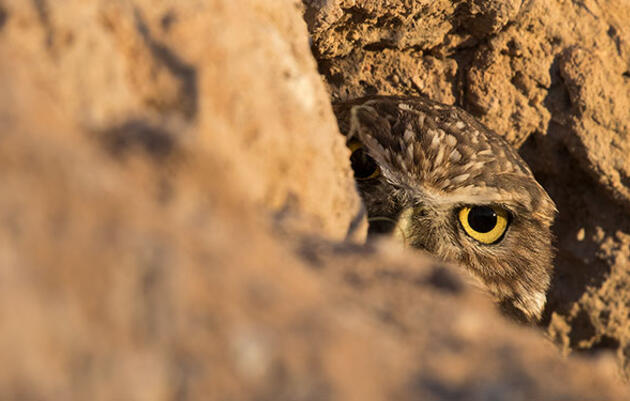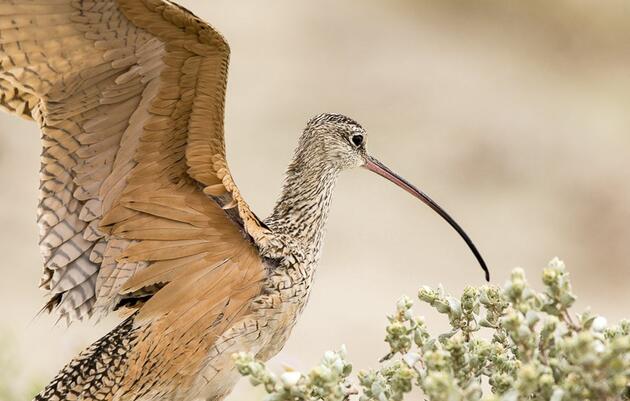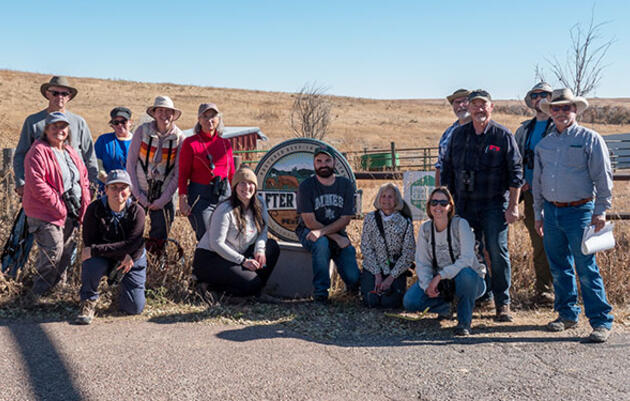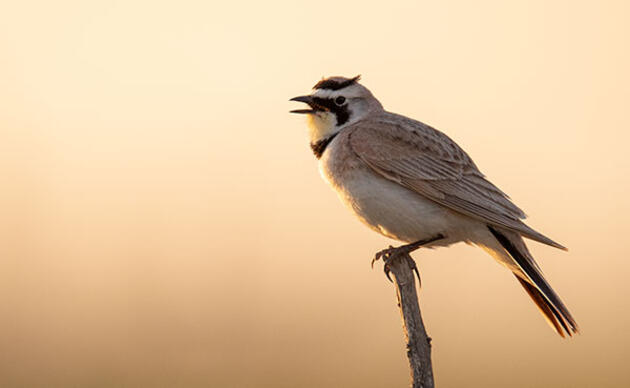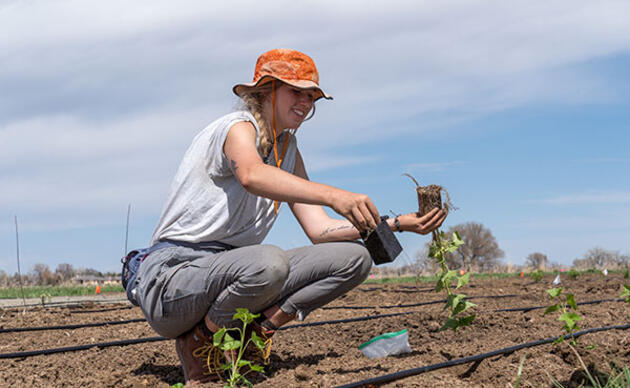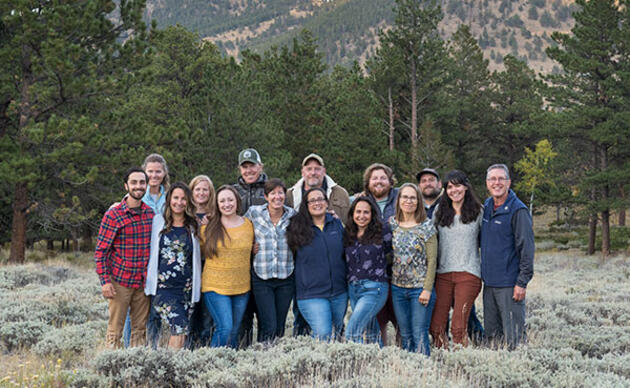Only in the last few years would you have imagined seeing the words “ecotourism” and “ranching” in the same sentence. Ranchers have viewed outsiders skeptically, while wildlife enthusiasts have seen ranching as harmful to the land and wildlife. Audubon Rockies and Reefs to Rockies are working to change that perception by demonstrating how ranching for wildlife and tourism can align for mutual benefit. The method? Birding tours on Audubon Certified Ranches.
Introducing Grasslands Ecotourism
America’s grassland birds are declining more than any other bird group in the continent, with some species by as much as 80 percent. Because the vast majority breed on private lands, working with ranchers is our best hope for conserving them. Thus, Audubon started the Audubon Conservation Ranching (ACR) program in 2017. Through it, we partner with ecologically responsible ranches to support and uplift their efforts. Recently, ecotourism emerged as a new way to do that.
Reefs to Rockies, founded in 2006, has always had a mission centered on conservation and wildlife through travel experiences. The company was inspired by a study-abroad program in Costa Rica, which sparked an interest in the relationship between tourism and conservation. With backgrounds in wildlife biology and education, the founders of Reefs to Rockies have dedicated their work to merging passion with purpose, creating meaningful and eco-friendly travel experiences.
Nature tourism is one of the fastest-growing segments of the global travel industry, with an expected growth of more than $50 billion by 2029. A 2022 survey found that more than 80 percent of travelers considered ecotourism important. However, traditional tourism often benefits local communities financially while negatively impacting local ecosystems. Effective, sustainable ecotourism can foster a positive relationship between travelers and communities, even in delicate ecosystems like America’s Great Plains.
Countries like Costa Rica have successfully integrated ecotourism into their conservation efforts for decades. Audubon and Reefs to Rockies aim to bring similar success to the Great Plains by partnering with ranchers certified in Audubon’s Conservation Ranching program. These tours will highlight the conservation successes of these ranchers, who are committed to protecting the ecosystems where grassland birds have experienced the most significant declines of any terrestrial biome since 1970.
The American Serengeti
At Audubon Rockies and Reefs to Rockies, we believe that conservation begins with appreciation. That’s why Reefs to Rockies created its American Serengeti Series. This series is designed to take guests into the heart of the Great Plains and showcase some of North America’s most impressive wildlife spectacles. During these trips, participants learn about the region’s history, witness ongoing conservation efforts, and explore trends toward a more sustainable future. The trips include visits to Audubon Certified bird-friendly ranches, where ranchers are dedicated to conservation and demonstrate a unique alignment of ranching and environmental stewardship.
On July 17, 2024, their first ecotour was held at Audubon’s Kiowa Creek Ranch in Colorado Springs, Colorado. A true American safari requires a game-viewing vehicle to allow for greater exploration. Enter the “Roaming Bison,” a van on a hydraulic lift outfitted with a pop-top, custom seats, and 4-wheel drive. With six participants, Chip Clouse, a guide for Reefs to Rockies, Dan Lorenz, co-founder of Wild Lands Marketplace, and John Kloster-Prew, Audubon Rockies’ deputy director, set out to see what impact implementing conservation ranching practices had on the land and wildlife.
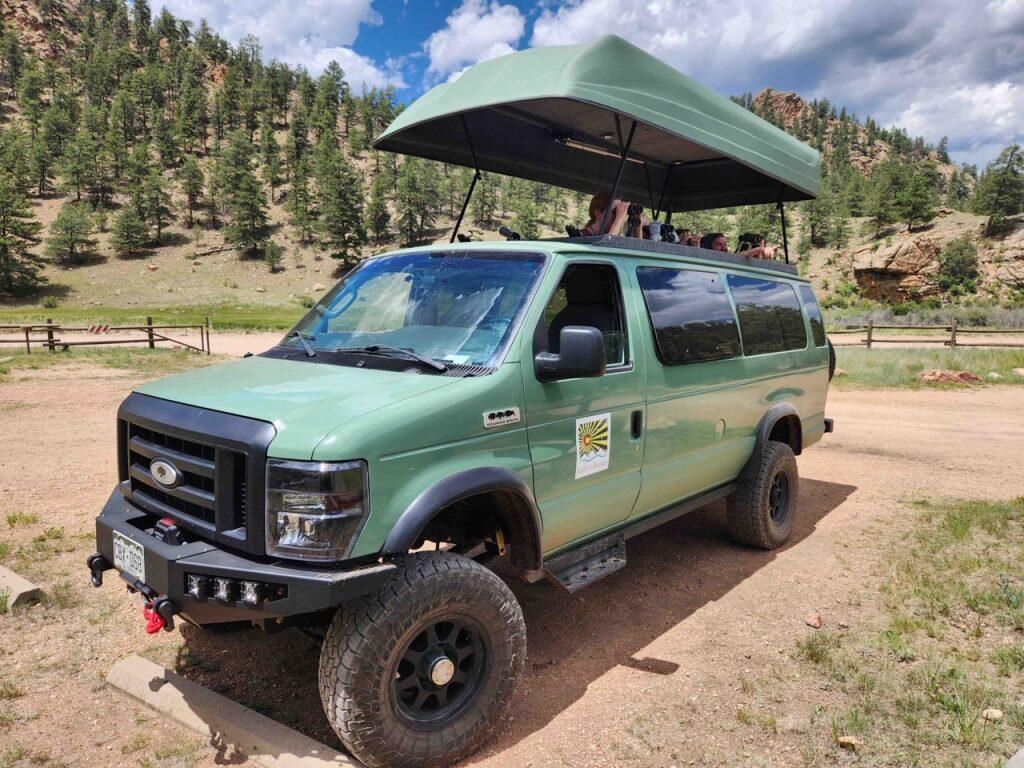
At our first stop, everyone could see the positive effects of regenerative grazing. This includes diverse plant communities and nutrient cycles that rebuild soil and conserve water. All of this leads to bird diversity and abundance, vegetation change, and soil health. Our intrepid guests quickly spotted a variety of birds, including Mountain Bluebirds, Northern Flickers, Pygmy Nuthatches, hummingbirds, and many other species. The ranch, made up of grassland, ponderosa pine forest, and wetlands, sees an abundance of waterfowl on the ponds. Elk, mule deer, badgers, and other wildlife find food, water, shelter, and a haven from area housing developments surrounding the ranch.
According to Dan Lorenz, there’s so much more to meat than most people realize. "Livestock carefully managed on the land prove that nature and nourishment can thrive together. When you truly get to know the story behind your steak, you’re not just eating. You’re experiencing how responsible ranching can transform the land into a sanctuary for wildlife, a place where the earth breathes easier and flourishes. The best meals aren’t just tasty; they’re good for the land and wildlife too,” said Lorenz.
At the end of the tour, the group consensus was music to our ears. “It was an honor and a privilege to be at these magnificent properties… Responsibly managed grazing land is bountiful for a broad range of native wildlife and plant species and is beautiful,” said one participant.
Looking Ahead
The partnership between Audubon Rockies and Reefs to Rockies represents a promising step forward for conservation. Ecotourism is about uniting conservation, communities, and sustainable travel while setting a new standard for integrated conservation efforts. This collaborative approach not only addresses immediate conservation needs but also lays the groundwork for long-term sustainability.
Through informed decisions and active participation in conservation, we can help ensure that future generations experience the beauty and richness of our planet. In other words, travelers have an increasing awareness of their environmental footprint and are seeking ways to make a positive impact. The impact of this unique partnership will be felt across landscapes and communities. We hope that our work will not only help protect vital grassland habitats but also inspire a new generation of conservationists dedicated to preserving the natural world.
In a time when environmental challenges are increasingly complex and interconnected, the collaboration between Audubon and Reefs to Rockies stands as a beacon of hope and a model for future conservation partnerships. Together, we are forging a path towards a more sustainable and harmonious relationship between people and the environment.
In the 2023 Audubon Certified Bird-Friendly Impact Report, you can read more about the program’s success in partnering with ranchers to improve grassland bird habitat, efforts ramping up to understand the soil and climate impacts of bird-friendly land management, and how the program is building consumer awareness of the Audubon Certified bird-friendly seal.

